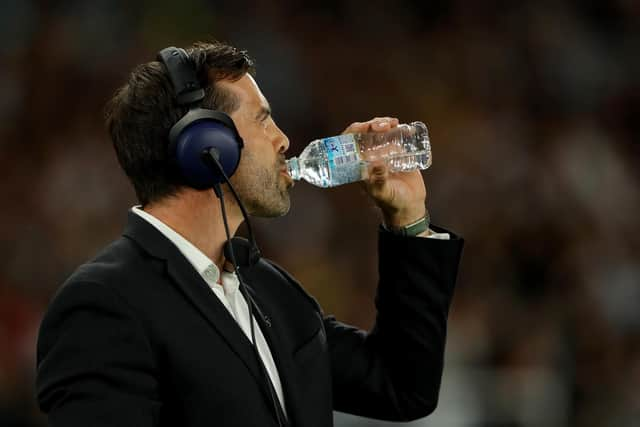Nations Championship: What it means for Scotland, relegation and promotion play-offs and future of summer tours and autumn Tests


Putatively titled the ‘Nations Championship’, it would be held in even years so as not to clash with the Rugby World Cup or Lions tours.
World Rugby is urging the leading nations to commit to it by the end of the week but they will need to be convinced of the financial merits before embracing such radical changes.
Advertisement
Hide AdAdvertisement
Hide AdUnlike previous proposals for a global world league, players’ groups are on board this time.
How it works
The two-tier plan would see Scotland ensconced in the top division alongside the other Six Nations teams, New Zealand, Australia, South Africa, Argentina, Japan and Fiji.
Each side would play six games against their rivals from the other hemisphere, with the top nations from the north and south pools then meeting in a Grand Final on the last weekend of November.
The proposal would see a European nation head south in the summer to play three games in two countries to minimise the amount of travelling, which was a key stumbling block for players last time.


For example, Scotland could go to Australia and play the Wallabies and Fiji, and then head to New Zealand to face the All Blacks. They would then host South Africa, Argentina, Japan at Murrayfield during the first three weekends of November.
What it means for Tier 2 nations
A second-tier tournament for emerging rugby nations would run alongside the main event with relegation and promotion play-off offering the opportunity to join the top division. The play-offs would be held on ‘finals weekend’ at the end of November.
Reports have said the lower league would be known as the ‘Challenger Division’ and would comprise Samoa, Tonga, the United States, Canada, Uruguay, Chile, Namibia, Georgia, Romania, Spain, Portugal and the Netherlands.


Membership of the Six Nations Championship would be unaffected by the new competition which would be based only on the results of matches played in the summer and autumn.
Financial implications
Advertisement
Hide AdAdvertisement
Hide AdThe emerging countries are already on board but the leading nations still need some convincing. It has been said that the new competition could boost revenues by as much as 40 per cent but more detail will be required.
Covid wreaked havoc with the game’s economics and financial security is key to any future activity.
For example, host nations currently retain all receipts from matches they stage which makes the autumn window such an important source of revenue for Scottish Rugby. The SRU will welcome Australia, Fiji, New Zealand and Argentina to Murrayfield this October/November.
The Australia game falls outside the recognised Test window so Scotland would only be able to select home-based players but the match is still likely to be a sell-out. Scotland may only have three autumn games under the terms of the proposed Nations Championship - unless they were to reach the final, or play-offs for the minor places were introduced.
Six Nations impact
Extending the autumn window to four weekends which would require the agreement of the English and French clubs and a possible trade-off could be the loss of one of the fallow weekends in the Six Nations, which could have implications for player welfare.
Interestingly, former All Black Conrad Smith, the head of welfare at International Rugby Players, is part of the working group that drew up the plans.
The agreement of the players is crucial to making the proposals work and he is urging the unions to get on board, warning that private equity groups could step in and take some of the control away from the game. CVC Capital Partners bought a 14.3 per cent stake in the Six Nations last year in a deal worth £365 million.
“We need to get some sort of commitment that is workable, rather than more rounds of talking,” Smith told the Daily Telegraph.
Advertisement
Hide AdAdvertisement
Hide Ad“We have been talking for the best part of 20 years now. We need something more than words.
“If it doesn't work now, I am sure it will take a totally different shape, and it might be a private equity group coming in. Ideally for rugby as a sport, we do this ourselves, and we keep the benefits. If private equity comes in, then they take their cut.”
Proposed start date
World Rugby will seek an agreement in principle from the leading nations at this week’s talks in Dublin but nothing will be adopted formally until its executive committee meets in November.
It is being billed as rugby’s most radical change since the sport turned professional in 1995 and would finally mean a unified global calendar. The proposed start date for the new competition is 2026.
Comments
Want to join the conversation? Please or to comment on this article.
